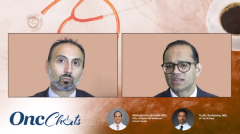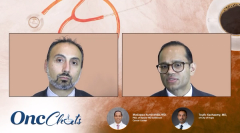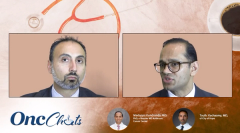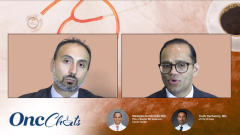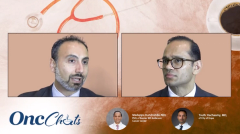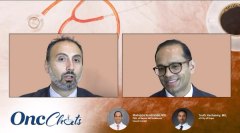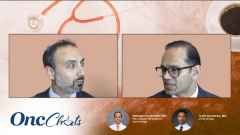
Understanding Endoscopy in the Realm of GI Cancers: Endoscopic Oncology and Existing Barriers
In this fifth episode of OncChats: Understanding Endoscopy in the Realm of GI Cancers, Madappa Kundranda, MD, PhD, and Toufic A. Kachaamy, MD, review the potential role for endoscopic ablation in gastrointestinal cancer.
Episodes in this series

In this fifth episode of OncChats: Understanding Endoscopy in the Realm of GI Cancers, Madappa Kundranda, MD, PhD, of Banner MD Anderson Cancer Center, and Toufic A. Kachaamy, MD, of City of Hope, review the potential role for endoscopic ablation in gastrointestinal cancer.
Kachaamy: If we take another part of endoscopic oncology, for example, endoscopic ablation, what can you tell us about this and what it means for oncology?
Kundranda: Endoscopic ablation is a relatively new area, and certainly, a very intriguing area. The data [are] limited. One of the advantages of endoscopic interventions is this unmatched access to GI malignancies for the most part, wherein the access is easy, safe, limited intervention, but also tissue can be obtained, and the responses can be evaluated. As such, it’s the whole spectrum of care that you’re doing as a part of this intervention. With regard to ablation itself, data [are] starting to emerge with quality of life as it pertains, for example, in esophageal cancer, and ablation helping with regard to symptoms, namely palliation. What is even more intriguing is the research question of whether this ablation will help with the release of neoantigens and immune modulation, which then adds to this factor of increasing not just your local symptoms, but certainly helping in terms of outcomes. That is rich fodder for research.
Kachaamy: Absolutely, that’s an area where I think there’s a lot of interest in doing research from the endoscopic side. What do you see [as] the barriers to the field of endoscopic oncology and the barriers to advance this field forward?
Kundranda: That mainly revolves around 2 main issues, the first of which is education. We need our gastroenterologists to be educated with regard to the knowledge and the expertise and the context of managing complex malignancies in a multimodality fashion. The second aspect of this is research. As we all know, procedural research is not easy, and more importantly, having procedural research outcomes to mirror medical oncology outcomes such as drug outcomes, including survival, is integral when you’re trying to manage these patients with these complex malignancies.
Check back on Friday for the next episode in this series.


